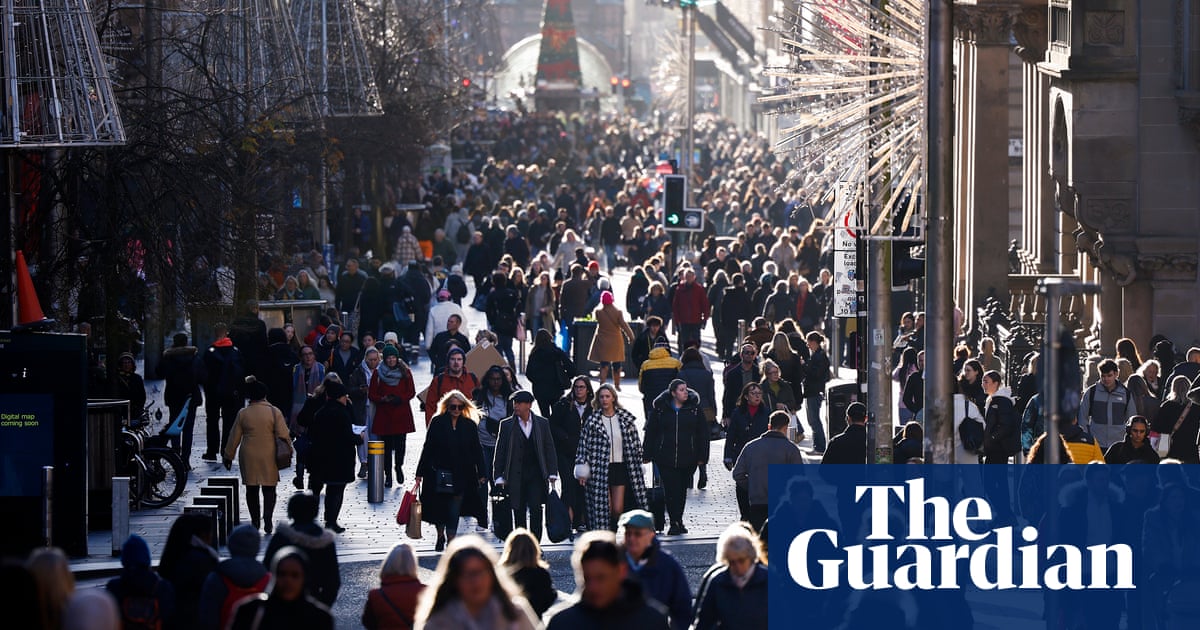
The UK economy eked out a return to growth in April as rising car sales and customers spending in pubs and bars helped output to recover from a wave of public sector strikes in the previous month.
The Office for National Statistics said on Wednesday that gross domestic product rose by a slender 0.2% month on month, matching the forecasts of City economists for a recovery from March when output declined by 0.3%.
Fuelled by an increase in consumer spending in the country’s dominant services sector, the rise in activity was partly offset by a dip in health sector output, which was affected by junior doctors’ strikes. Activity also fell in computer manufacturing and the pharmaceuticals industry.
The ONS warned there were signs of stress emerging amid a sharp monthly fall in construction activity. Under pressure from rising interest rates and falling property values, it said housebuilders and estate agents had a poor month.
The latest snapshot comes amid growing expectations the Bank of England will raise interest rates for a 13th time in succession next week from its current level of 4.5% in response to stubbornly high inflation, adding to the pressure on households and businesses already reeling from the sharpest rise in borrowing costs for decades.
Economists said the return to growth in April could be interpreted by the Bank’s policymakers as a sign that higher interest rates have not yet dampened demand enough to reduce inflationary pressure.
Kitty Ussher, the chief economist at the Institute of Directors, said: “Households responded to the improving weather in April by raising their levels of discretionary spending – even in the face of rising costs.”
Figures on Tuesday showed activity in the UK jobs market was stronger than expected in April, with wage growth hitting the highest level on record outside the Covid pandemic. Inflation fell by less than expected in April to 8.7% – the highest level in the G7 – fuelling expectations for a rate rise.
“The facts remain that families are feeling worse off, facing a soaring Tory mortgage penalty and we’re lagging behind on the global stage,” said Rachel Reeves, the shadow chancellor.
“Despite our country’s huge potential and promise, today is another day in the dismal low growth record book of this Conservative government.”
More broadly, GDP grew by 0.1% over the three months to April, lifting Britain’s economy marginally above pre-pandemic levels. However, analysts warned that the resurgence in activity was unlikely to last, thanks to higher interest rates hitting the spending power of mortgage holders.
Ruth Gregory, the deputy chief UK economist at Capital Economics, said the consultancy estimated that more than 60% of the drag on the economy from higher borrowing costs was yet to be felt. Financial markets also anticipate the Bank will increase rates by more than one percentage point from the current level of 4.5%.
“That’s why we still think a recession is on its way in the second half of this year,” she added.
Late last year, economists feared the UK would be in recession by now. However, falling global energy prices and rising consumer confidence have helped to bolster activity. The economy grew by 0.1% over the first quarter, matching the performance in the final three months of 2022.
Revised figures last week showed the eurozone sank into a mild recession around the turn of the year, after two consecutive quarters of shrinking GDP. The US economy grew by 0.3% in the first quarter, after 0.6% growth in the fourth quarter of 2022.
Jeremy Hunt, the chancellor, said the International Monetary Fund forecast the UK economy would be growing faster than Germany, France and Italy from 2025. “But high growth needs low inflation, so we must stick relentlessly to our plan to halve the rate this year to protect family budgets.”
However, business leaders warned there was little to celebrate, with a growth rate close to zero. “The economy continues to skirt recession,” said David Bharier, the head of research at the British Chambers of Commerce.
“Further upcoming changes on trade with the EU, such as new reporting requirements and import charges, will also add more pressure to exporters, many of whom have seen diminished activity due to mounting trade barriers.”












